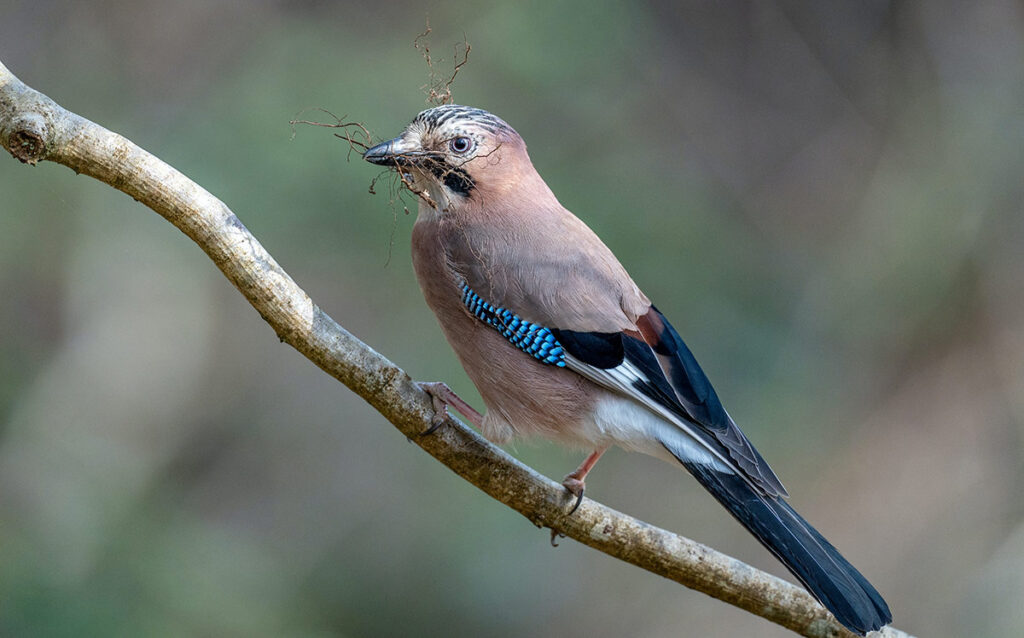More than half the trees in two new woodlands in lowland England have been planted not by landowners, charities or machines but by jays.

Former fields rapidly turned into native forest with no plastic tree-guards, watering or expensive management, according to a new study which boosts the case for using natural regeneration to meet ambitious woodland creation targets.
Instead, during “passive rewilding”, thrushes spread seeds of bramble, blackthorn and hawthorn, and this scrub then provided natural thorny tree “guards” for oaks that grew from acorns buried in the ground by jays.
The study, published in the journal Plos One, followed the fate of two fields next to Monks Wood, a nature reserve in Cambridgeshire. One, a barley field, was abandoned in 1961. The other, former grassland, was left alone in 1996.
After just 24 years, the grassland area, known as “the new wilderness”, had grown into a young wood with 132 live trees per hectare, 57% of which were oaks.
Yet gamekeepers still trap them by exploiting a General Licence GL 40 on the ironic grounds of “protecting endangered woodland birds!”.
Source: Guardian
